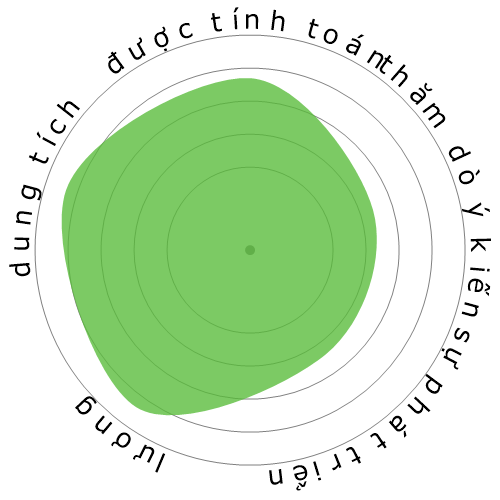Luật sư
Bạn Muốn Đi Đâu Tiếp Theo?
Hoặc, Khám Phá Nghề Nghiệp Này Chi Tiết Hơn...


Bông tuyết này thể hiện điều gì?
Đây là gì?
Chúng tôi đánh giá công việc dựa trên bốn yếu tố. Đó là:
- Khả năng bị tự động hóa
- Sự phát triển của công việc
- Mức lương
- Số lượng vị trí công việc hiện có
Đây là một số điều quan trọng cần suy nghĩ khi tìm kiếm công việc.
Người khác cũng đã xem
Rủi ro tự động hóa đã được tính toán
Rủi ro thấp (21-40%): Các công việc ở mức độ này có rủi ro tự động hóa hạn chế, vì chúng đòi hỏi sự kết hợp giữa kỹ năng kỹ thuật và kỹ năng tập trung vào con người.
Thêm thông tin về điểm số này, và cách tính nó có sẵn ở đây.
Cuộc thăm dò ý kiến của người dùng
Khách thăm trang web của chúng tôi đã bỏ phiếu rằng họ không chắc chắn nếu công việc này sẽ được tự động hóa. Tuy nhiên, nhân viên có thể tìm được sự yên tâm trong mức độ rủi ro tự động mà chúng tôi đã tạo ra, cho thấy có 23% khả năng tự động hóa.
Bạn nghĩ rủi ro của việc tự động hóa là gì?
Khả năng nào mà Luật sư sẽ bị thay thế bởi robot hoặc trí tuệ nhân tạo trong 20 năm tới?
Tình cảm
Biểu đồ sau đây được hiển thị khi có đủ phiếu bầu để tạo ra dữ liệu có ý nghĩa. Nó hiển thị kết quả thăm dò ý kiến của người dùng theo thời gian, cung cấp một chỉ báo rõ ràng về xu hướng cảm xúc.
Cảm xúc theo thời gian (hàng quý)
Cảm xúc theo thời gian (hàng năm)
Sự phát triển
Số lượng vị trí làm việc 'Lawyers' dự kiến sẽ tăng 5,2% vào năm 2033
Tổng số việc làm, và dự kiến số vị trí tuyển dụng
Dự báo cập nhật sẽ được công bố vào 09-2025.
Lương
Tại 2023, mức lương hàng năm trung bình cho 'Lawyers' là 145.760 $, hoặc 70 $ mỗi giờ
'Lawyers' đã được trả mức lương cao hơn 203,3% so với mức lương trung bình toàn quốc, đứng ở mức 48.060 $
Lương theo thời gian
Dung tích
Tính đến 2023, có 731.340 người được tuyển dụng làm 'Lawyers' tại Hoa Kỳ.
Điều này đại diện cho khoảng 0,48% lực lượng lao động có việc làm trên toàn quốc
Nói cách khác, khoảng 1 trong 207 người được tuyển dụng làm 'Lawyers'.
Mô tả công việc
Đại diện cho khách hàng trong các vụ kiện hình sự và dân sự cũng như các thủ tục pháp lý khác, soạn thảo các tài liệu pháp lý, hoặc quản lý hoặc tư vấn cho khách hàng về các giao dịch pháp lý. Có thể chuyên về một lĩnh vực duy nhất hoặc có thể thực hành rộng rãi trong nhiều lĩnh vực pháp luật.
SOC Code: 23-1011.00
Bình luận (233)
They'll do less errors, and don't require sleep. No more receptionist that is away. Longer opening hours.
Why do you say robots have no empathy, you fillthy racist? They have it. Robots would probably beat you up.
Not that I'd expect someone who doesn't even know the definition of 'racist' and just flings the word around however would know what empathy is...
And besides, you never even addressed what they said. They didn't even bring up empathy, as their point was about people not wanting a robot to defend them. You've brought up a completely nonsensical rebuttal to an argument that doesn't exist.
These are the tasks that robots won't be able to fulfill for at least a decade from now.
These are the tasks that robots won't be able to fulfill for at least a decade from now.
Trả lời bình luận